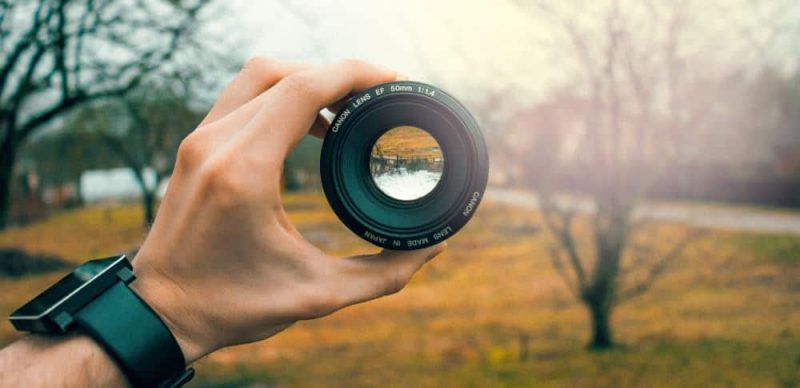Sleep is one of the basic needs. But how does sleep deprivation affect the brain? And how can you sleep better? Here are our best tips.
Sleep is one of the basic needs. How much each of us needs is very different. Approximately 7-8 hours can be taken as a guide for an adult, but there is a wide fluctuation range: one needs six hours, others need at least ten hours to sleep well and feel fit.
We are all different.
During the resting phase, the body regenerates and repairs, and the brain processes the information of the day.
If sleep is disturbed or lacking in quality and quantity, it has an impact on the entire organism: starting with symptoms such as headache, nausea, listlessness and lack of concentration in short-term sleep deprivation, the consequences of long-term sleep deprivation range from disturbed metabolism to hallucinations and increased risk of heart attack. In extreme cases, sleep deprivation can even lead to death.

Sleep Effects on the Brain
How important healthy sleep is for the brain, was shown by an American study.
She has discovered why older people, in particular, lose their memory and memory. They sleep shorter and have less deep sleep phases.
During the night, dream and deep sleep phases alternate, with the deep sleep phases being more pronounced in the first half of the night and becoming shorter towards morning.
In this article, we will cover (made by the body of serotonin) why good sleep quality can improve your brain and overall performance.
Decisive for a good memory is the deep sleep phases with slow brain waves. During this time, the memories of the day are transported from the hippocampus to the prefrontal cortex and transferred from short-term memory to long-term memory.
Even when learning, enough deep sleep phases are important. Experiments have shown that after a day of studying some brain areas slept deeper during the night.
Sleep and Logic
Logic and emotions are also affected by lack of sleep – people under sleep deprivation often act irrationally.
Instead of logical thinking, it comes to emotional thinking. The reason for this was shown by an attempt by Harvard University. Thirteen volunteers stayed awake for 35 hours, and the comparison group maintained their normal sleep-wake cycle. Then both groups were shown 100 images with neutral to extremely emotionally charged subjects.
The group with sleep deprivation reacted 60% more to the negative emotions in the feeling center, the so-called amygdala, than the comparison group. Also, the coupling between the amygdala and the center for logical thinking, the prefrontal cortex, remained intact.
Instead, there was a coupling between the emotional center and the point in the brain, which is responsible for the escape reflex in case of threats.
You should therefore always make sure to always sleep sufficiently to feel well rested and fresh through the day.

Best Sleep Hacks
Sigmund Freud already knew: good sleep is one of the most important factors for successful learning and remembering.
Freud suspected that while sleeping, the brain would review the day, memorizing the information into the brain. In numerous studies, modern science has been able to prove that good sleep actually has a memory-boosting effect.
How can you ensure optimal sleep in an important learning or working phase?
1. Make a Sleep Routine
Go to bed at the same time every day and get up at the same time each day. Very soon your body gets used to it and you wake up naturally in the morning, without having to be woken up. Even falling asleep is so much easier, because your body is used to the routine.
2. Exercise
You should do some kind of exercise at least once a day.
Sleep is there for the recovery of the body and mind, but if there is nothing to recover from it, it stays awake and you will be tossing and turning for hours at night.
30 minutes of yoga, jogging or swimming are ideal, but not immediately before going to bed. This increases your cortisone level and you can not sleep.
3. Ensure Absolute Darkness in the Bedroom
The darker your bedroom is, the better you can sleep. Darkness ensures that the sleep hormone melatonin is released.
If your room is bright or you have a lot of screens around you like TV, laptop or smartphones, the so-called blue light on these screens prevents you from sleeping well. Blue light is a sleep killer because it reduces the formation of melatonin.
4. Minimize Electrosmog
Either you remove electrical equipment from your room completely or you pull the plug, which also helps. Electrosmog is often underestimated as the cause of sleep disorders, but it can play a major role.
5. Free your Head
One of the main reasons for falling asleep is circling thoughts and worries that still bother one in bed. Here are four ways to get rid of them:
1. You solve the problem or think about it before bedtime
2. You’re talking about the problem of the soul
3. You learn meditation techniques
4. You rely on calming and tension-releasing active ingredients from nature. These include rose root or lemon balm, which not only relaxes your muscles but also your head.

6. Play quiet Background Music
There are specially designed beats that can help you sleep. Binaural beats are currently very trendy and can produce different states from “highly concentrated” to “calming and relaxed” in your brain through certain tones and frequencies.
So these beats can also make it easier for you to fall asleep.
7. Eat the right Food
You should not go to bed with an empty or full stomach. It should take two to three hours between the last meal and going to bed.
Avoid drinks such as coke, coffee, tea, alcohol, and tobacco in the hours before bedtime.
Make sure you drink at least two liters of water a day but do not drink anything for an hour before going to sleep to avoid going to the toilet at night.
If it happens that you can not fall asleep for starvation, try to use low-carbohydrate foods to keep your blood sugar levels from skyrocketing. Can help, e.g. Pistachios, which boost the melatonin level.
8. Sleep 7 to 8 Hours a Night
No less, but no more, because too much sleep will manifest itself in the course of the day in the form of sluggishness or fatigue.
9. Sleep in Comfortable Positions
Do not lie on your stomach when sleeping. If you want to lie sideways, pin a pillow between your legs to support your hips.
If you want to lie on your back, put a pillow under your legs to release some pressure from your back.
10. Take a Hot or Cold Bath
With fragrant bath oil or bath salt, you will experience pure relaxation. Be careful not to fall asleep in the bathroom!
12. Adjust the Room Temperature and Humidity
The optimum temperature for falling asleep is 16 to 18 degrees, the relative humidity should be 50 to 60%.
13. Clean up your Bedroom
If you can not sleep and your room looks like a war zone, take the opportunity to clean up properly.
It makes you tired and makes your sleep environment more comfortable.
Conclusion: Sleep Deprivation Effect on the Brain
You see: You can learn to sleep and prevent the negative effects of sleep deprivation on the brain.
If you follow this advice during an important exam phase you will enjoy a fantastic, restful and deep sleep.
Thus, you give your brain the chance to consolidate what you have learned and create the ideal prerequisites for the highest concentration on the following day while learning or in the exams themselves!
Cheers,
Sam




